Israel-Hamas War: What happened on day 132?
Israel kills Hezbollah special forces commander who led Meggido terror attack • IDF launches op. in Gaza's Nasser Hospital to retrieve hostages' bodies
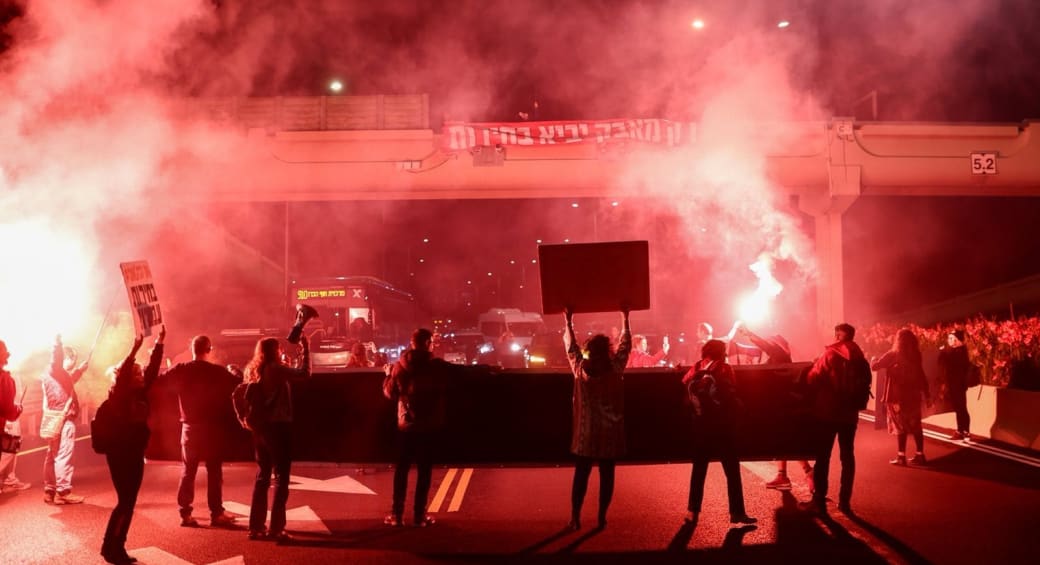
Qatari envoy to JPost: Disappointed Israeli officials not in Cairo talks
“Qatar is putting all its effort” into securing the release of the hostages, Abdullah bin Mohammed bin Saud Al-Thani told the Post's Zvika Klein.

Dialogue and trust are key ingredients to finalizing a deal for the return of the hostages from Gaza, Qatar’s envoy to Germany said as he expressed his disappointment over Prime Minister Benjamin Netanyahu’s decision not to send an Israeli delegation back to Cairo.
“I didn’t want this to happen,” Qatari Ambassador to Germany Abdullah bin Mohammed bin Saud Al-Thani told The Jerusalem Post’s Editor-in-Chief Zvika Klein in Berlin.
“I wanted at least for the communication to continue because without communication, how can we get to the bottom of it.”
First Qatari participation in an Israeli-organized conference
Klein publicly interviewed Thani at Joint Perspectives, a cooperative conference hosted by WELT and The Jerusalem Post, in what is the first time that a Qatari official has participated in a conference jointly organized by an Israeli news outlet.
Go to the full article >>CIA director meets with Netanyahu, Mossad head in Israel Thursday night
Central Intelligence Agency director William Burns met with Prime Minister Benjamin Netanyahu and Mossad director Yossi Cohen in a secret meeting on Thursday night, according to Israeli media reports.
This is a developing story.
Go to the full article >>US could target Israel's Ben-Gvir, Smotrich in latest sanctions - report
The sanctions were considered amid exacerbated tensions between the US and Israel due to Washington's insistence that Israel refrain from carrying out a full-fledged invasion of Rafah.
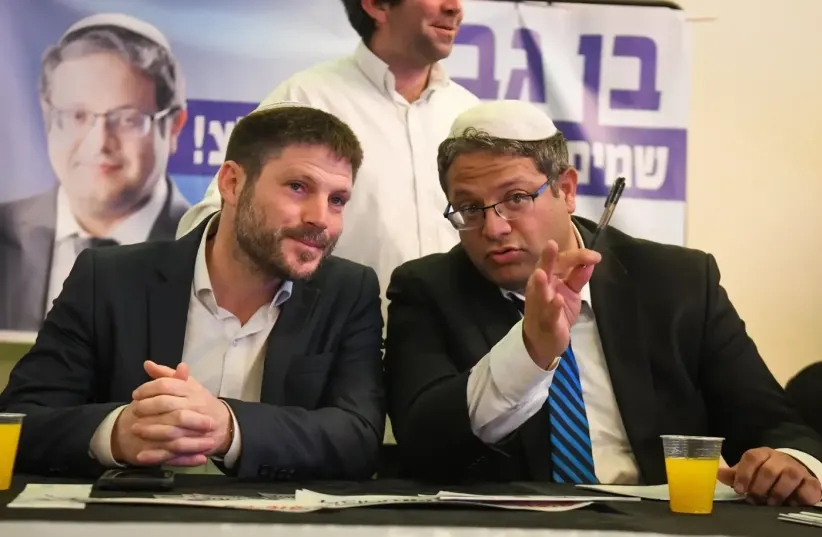
The United States is considering imposing sanctions on Israel's Finance Minister Bezalel Smotich and National Security Minister Itamar Ben-Gvir, the Wall Street Journal reported on Thursday.
According to the report, the US was preparing a package of sanctions that would include actions taken against the two far-right ministers who are influential members of Prime Minister Benjamin Netanyahu's cabinet.
The sanctions were considered amid exacerbated tensions between the US and Israel due to Washington's insistence that Israel refrain from carrying out a full-fledged invasion of Rafah in the southern Gaza Strip.
Netanyahu, who spoke with US President Joe Biden earlier in the week, insisted that he planned to move forward with a military operation in Rafah on Wednesday.
Go to the full article >>Israel's deadly dance with Hezbollah has become a chess game - analysis
Iran sought to map out a new world order in the region by pushing its pawns, like Hezbollah, forward, and Israel will be challenged to return to a situation like the one that prevailed last year.
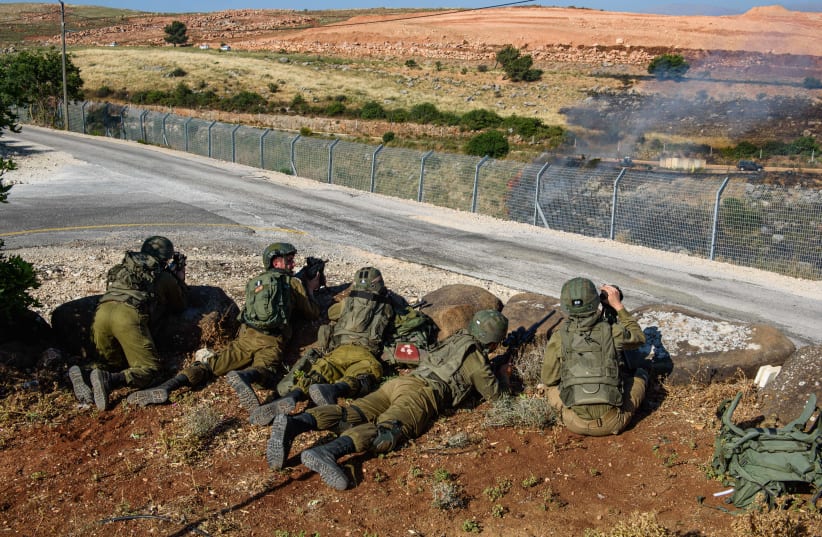
Israel carried out an airstrike in Lebanon on February 14 that eliminated “a senior commander in Hezbollah’s Radwan Forces, his deputy commander, and an additional terrorist operative in Lebanese territory yesterday,” the IDF said on February 15. This is an important development because it came after rocket fire from Lebanon struck Safed, killed an IDF soldier, and wounded eight other people.
However, the strike in Lebanon raises other important issues that should be addressed. First of all, the IDF says that the man who was hit with the airstrike was “a commander in Hezbollah’s Radwan Forces, Ali Muhammad Aldbas.” The IDF says that “Aldbas was amongst those who directed the terrorist attack at the Megiddo Junction in Israel in March 2023. He led, planned, and carried out terrorist activity toward the State of Israel, especially during this war.”
This is important. However, it is also interesting that he was only eliminated now, a year after this serious Hezbollah escalation. It’s important to understand that the Hezbollah escalation against Israel to redraw the red lines in the north and alter the “equation,” as Hezbollah leader Hassan Nasrallah calls it, did not begin on October 8.
October 8 is the date Hezbollah decided to back the Hamas attack on Israel that had occurred the day before, October 7. Hezbollah was likely encouraged to begin attacks by Iran, which backs Hezbollah and Hamas. Iran then also keyed in the Houthis in Yemen and also militias in Iraq and Syria.
However, Hezbollah’s moving of the goalposts did not start on October 8. In fact, it had already begun to escalate in 2022 when it threatened war with Israel if Israel didn’t sign a maritime deal, brokered by the US, with Lebanon. Hezbollah used the lead-up to the 2022 elections in Israel to create threats and potential chaos. As such, Israel agreed to delineate the maritime border.
This showed Hezbollah was controlling Lebanon’s foreign policy in southern Lebanon. Rather than withdrawing from the area as it was supposed to do after the 2006 war, it was now showing it controls Lebanon and the borders of Lebanon.
Go to the full article >>Kiryat Shmona building damaged in rocket fire from Lebanon
Rocket fall in Kiryat Shmona left a property damaged with no reports of casualties on Thursday, according to Israel Police.
Authorities are actively scanning the sites of the damage to look for additional remains or damage.
Go to the full article >>French NGO's logo appears in footage from Hamas's Gaza tunnels
Humani'Terre, an alias of a terror-designated organization known as CBSP, was designated by Israel and the US over two decades ago.

A screenshot from N12 footage taken inside a Hamas tunnel in Gaza reveals what appears to be a scooter carrying the logo of a French NGO, designated years ago as a terror group related to Hamas by both Israel and the US.
The organization Humani'Terre is recognized by the US Office of Foreign Assets Control (OFAC) as an alias of a group named the Committee of Charity and Solidarity with Palestine (CBSP), a French organization designated as a terror group acting and fundraising on behalf of Hamas – by Israel as early as 1997, and by the US in 2003.
According to their official filings, the organization gained approximately 30,000 euros worth of public funding in 2022. A scooter carrying their logo inside a Hamas-run tunnel may suggest that Hamas officials were exploiting this equipment, allegedly aimed at the needy of Gaza, to facilitate movement inside the tunnels built as command centers and weapon warehouses.
"It is quite disturbing that France, which called for an international coalition against Hamas following the October 7 massacre, continues to allow Humani'Terre to operate. All the more so when its links to the terror group have been public knowledge for decades,” says Vincent Chebat, senior researcher at the NGO Monitor watchdog, who was also the first to identify this logo and go public about it.
“The French government must also act against other terror-linked NGOs, notably Samidoun and Collectif Palestine Vaincra (CPV), which are vectors of radicalization in Europe,” he adds. Chebat is referring to two organizations sympathizing with the Popular Front for the Liberation of Palestine (PFLP), terror-designated organizations in the EU, the US, and Israel, among others. The former, Samidoun, was designated by Israel as a terror group affiliated with the PFLP in 2021, while the latter, CPV, was ordered dissolved by French President Emmanuel Macron – a decision later rejected by the French courts.
Regarding the organization known as CBSP, Dr. Dina Lisnyansky, a political expert on Middle East Affairs at the Shalem College, Forum Dvorah and Reichman University, comments: “CBSP is run under the umbrella of Muslim Brotherhood-affiliated entities in Europe. It has faced scrutiny in Israel and the US for its financial activities and is recognized as being involved in funneling funds to Hamas for years. They operate through seemingly legitimate channels, including charitable events, where collected funds are nevertheless directed purportedly to Hamas.”
Go to the full article >>IDF spy-gate: Who is the man who collected classified Israeli intel?
According to Maariv, the suspect is a lawyer who previously worked to rescue Israelis and Jews from war-torn Ukraine.

The suspect who was indicted last month for impersonating a captain in the IDF and obtaining highly classified intelligence is a lawyer who previously worked to rescue Israelis and Jews from war-torn Ukraine, Israeli media reported on Thursday.
According to Maariv, the suspect received complaints in the past over his handling of funds raised for Jews in Ukraine, which were rebuffed.
Earlier this week, the Beersheba District Court approved the publication of further details on the indictment. As per the court, the suspect falsely misrepresented himself as a senior intelligence official, documenting classified information, soldiers, and IDF computers and sharing said intelligence with unqualified military personnel, as well as civilians.
Suspect 'drafted himself' for IDF reserves service, indictment charges
The indictment further accused the suspect of "drafting himself" for reserve service, noting that he never received the Tzav 8 order from the IDF and instead contacted an intelligence officer requesting to serve.
Go to the full article >>Hamas commander killed by IDF held murdered hostage in hospital
The IDF has reported on recent successful coordination between its ground, air, navy, and commando forces in eliminating Hamas terrorists and unearthing weapons and rocket launchers.
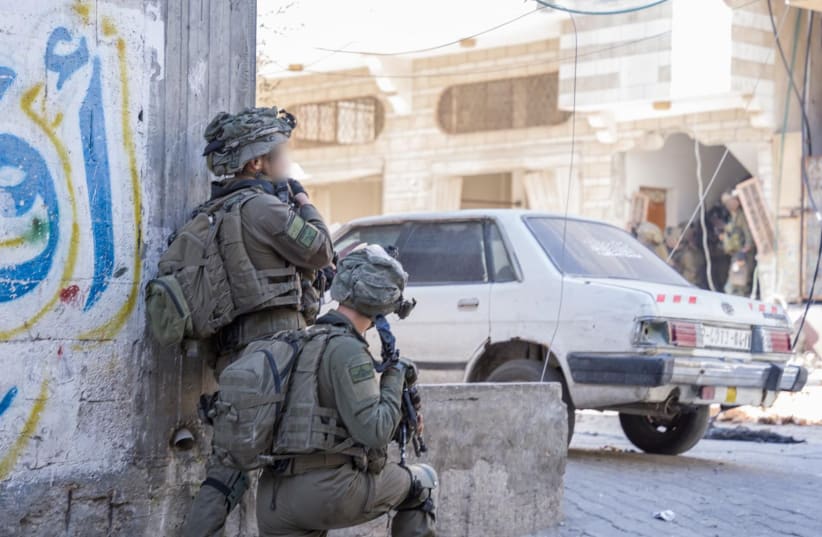
The IDF and Shin Bet on Thursday announced the targeted killing of a commander in Hamas's Shati Battalion who held IDF soldier Noa Marciano hostage in the Gaza Strip.
Ahmad Gol was involved in the October 7 massacre of southern Israeli towns and, following his return to the Gaza Strip, held Marciano hostage inside the Shifa Hospital, where she was murdered.
Gol was killed in a targeted operation in Gaza City on Wednesday.

CIA director met Netanyahu, Mossad head in secret visit to Israel - report
Central Intelligence Agency director William Burns was in Israel earlier this week for secret meetings with Prime Minister Benjamin Netanyahu and Mossad director Yossi Cohen, N12 reported on Thursday.
This is a developing story.
Go to the full article >>What is Israel's place in an era of global insecurity? - explainer
From Russia to Iran, this annual report discusses the various global conflicts and how they shape the world order.
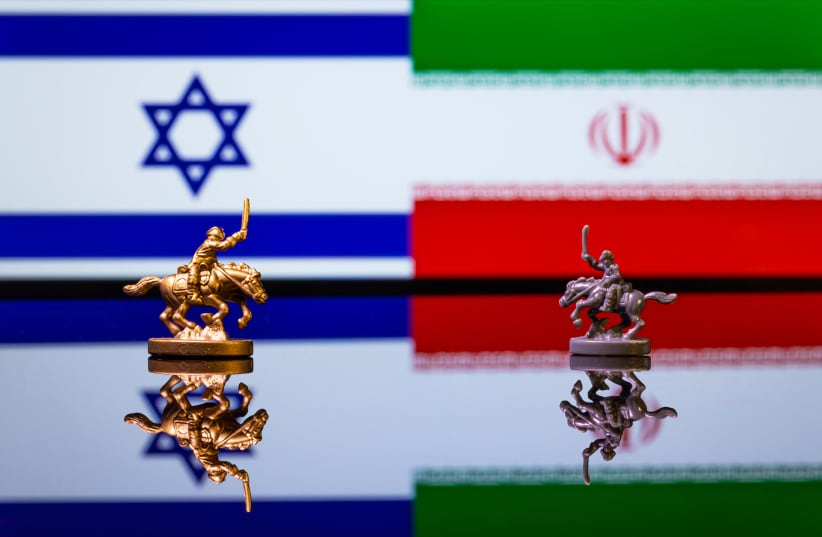
Israel is a footnote.
The media gives the Israel-Hamas Gaza War and spinoff Hezbollah conflict outsized importance, but in the grand scheme of the future of global military battles, it fades into the background of tensions between giants like the US, China, and Russia.
That is the picture that is painted in the International Institute for Strategic Studies (IISS) annual report on the military balance and defense economics picture worldwide in 2024.
The only mention of Israel in the executive summary of the report is a one sentence thrown on a list of many conflicts, “The IISS Military Balance…shows the deteriorating security environment which is exemplified by a mounting number of conflicts, such as the Hamas–Israel war, Russia’s continued aggression against Ukraine, Azerbaijan’s takeover of the Nagorno-Karabakh region, coups in Niger and Gabon, as well as China’s more assertive maneuvers around Taiwan, in the South China Sea and elsewhere.”
The military world views Hamas as insignificant
What this, and other short sections in the much longer full 554-page report say is that the military world views Hamas as insignificant, and the war between Israel and Hamas is only meaningful to the extent that it has wrapped in other actors impacting global interests.
The number of times that Yemen is mentioned in the report, though it is only a side player in the Israel-Hamas war, dwarfs the number of mentions of Hamas, which is mentioned as many times as Hamas.
Another point related to the Israel-Hamas War, which the report seems not to have fully taken in, is the restoration of Israel’s larger reservist armed forces to more regular duty. The report does mention Israel has both active and reserve duty portions of the military, but IISS may not realize how much the war has blurred some of the lines between the two.
Go to the full article >>Israel-Hamas War: What you need to know
- Hamas launched a massive attack on October 7, with thousands of terrorists infiltrating from the Gaza border and taking some 240 hostages into Gaza
- Over 1,200 Israelis and foreign nationals were murdered, including over 350 in the Re'im music festival and hundreds of Israeli civilians across Gaza border communities
- 134 hostages remain in Gaza, IDF says